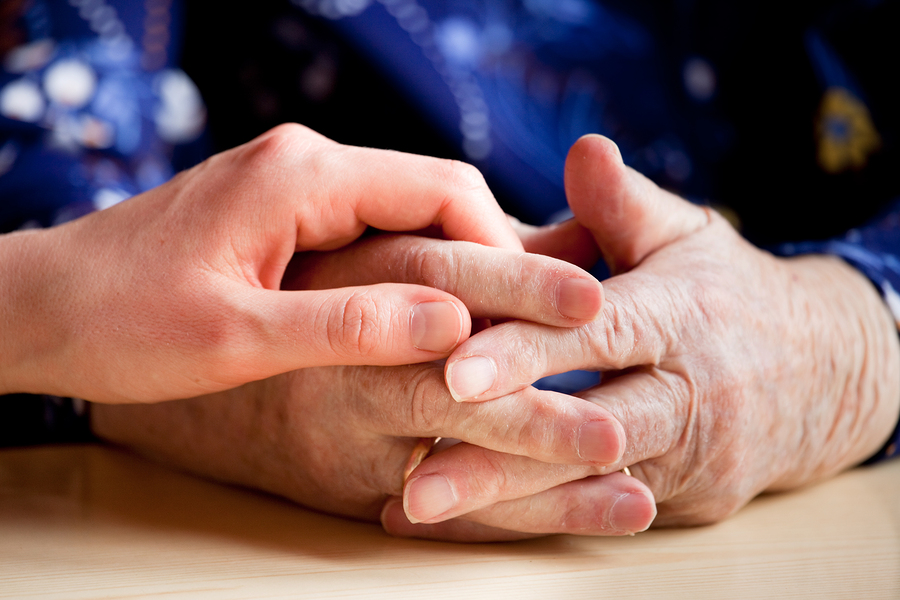5 Tips for Handling Parent Anxiety | Caregivers for Elderly – Vancouver
Mental health is an important part of our overall well-being and is something we all can play a role in addressing. Anxiety is one of the more common mental health issues facing many Canadians. A whopping 25% (1 in 4) Canadians will have experienced at least one anxiety disorder in their lifetime.
If you are a family caregiver for seniors supporting someone with anxiety, there are different coping mechanisms that you may have already tried. You may have asked them to stop worrying. As well, you may have provided support for the person by taking on additional responsibilities that the person has been avoiding. These responsibilities and prompts are what we call “temporary fixes” until the person feels more comfortable.
What happens when these “temporary fixes” become the new norm? While well intentioned, the above listed types of coping strategies do not resolve the underlying issue – anxiety. They simply sweep the issue(s) under the rug. Eventually they will need to be addressed.
The following are tipsyou as a family caregiver for elderly parents in Vancouver could use to assist your loved one with symptoms of anxiety.
Understanding Anxiety | Caregivers for the Elderly
The best way to help someone with anxiety is to first understand the condition itself.
The first thing you should know is that anxiety disorders are not the same as nervousness (e.g., feeling nervous before an important meeting, feeling nervous about grandchildren moving away to college). Being nervous for such things is to be expected.
Individuals with anxiety, whether diagnosed or not, are living with difficult symptoms on a daily bases. These symptoms are between moderate and severe and can often interfere with facets of life, such as home life and social life.
Anxiety can affect a person’s thinking, feelings, behaviour, how they relate to others, and how they view themselves. Listed below are a few examples of how your loved one may exhibit anxiety:
- Thinking – The person may experience constant thoughts about being injured, something bad happening, or being judged in the wrong way.
- Feeling – The person may fret excessively, be fearful, irritable, annoyed, or feel guilty. They may feel as though no one understands them.
- Behaviour – The person may avoid people, situations, or objects that they were once interested in.
- Relating to others – The person may feel more nervous than usual about meeting new people, worried about saying something that will offend someone, and easily hurt about criticism from others.
5 Tips to Assist ElderFamily Members with Anxiety Disorders | Caregivers for Elders in Vancouver
- Consult a Family Physician
Your first step is to consult your general practitioner to find out what the underlying cause of the anxiety is and if there are treatments that can be prescribed. As well, ask the physician to recommend a geriatric assessment to spot neurological issues (e.g., dementia) causing this distress. They may also be able to suggest a therapist that will help train your parent(s) in cognitive behavior therapy, which will help undo some of their habits of worry, anxiety, and apprehension.
- Help them Find the Right Support
Your next step would be to schedule regular in-person or phone visits with your parent, so that they understand that they are not alone. If your loved one has friends or other relatives who live nearby, you may want to enlist their aid in keeping an eye on things. Another good resource for ongoing personal support is a local, licensed caregiver agency. A seasoned caregiver agency will match your loved one with a caregiver who can provide supplementary support when you are not around or unable to be there for your parent(s).
- Do it Together
Helping your elderly loved one maintain a healthy lifestyle may also alleviate symptoms of depression. Instead of them doing it on their own, why not join them in their routine. This is a great chance for you two to bond like in the old times. Go out for walks, go shopping or cook together. This is sure to lift spirits and make them feel loved.
- Focus on the Positives
When trying to talk to seniors about how they are feeling, try to avoid using words with negative connotations that may trigger defences in them. Words such as ‘depression,’ ‘struggling’ or ‘can’t cope’ can make them even more fearful. Barriers will most likely be raised and they will not open up to you. Words such as ‘sad,’ ‘blue,’ and ‘rough time’ are preferred because theymake the topic less intimidating.
- Maintain Healthy Eating Habits
Good nutrition is very important for all individuals and not just the elderly. It is especially important for older adults who suffer from anxiety. Fiber-rich food such as fruit and vegetables are perfect seniors, and so are whole grains and lean protein. Vegetables are preferably served lightly cooked and with little orno sugar, starch, and unhealthy fats added.
Ace Personnel | Caregivers for the Elderly| Vancouver – White Rock – Surrey – Fraser Valley
If you need assistance with caregiver services for the elderly members of your family in the Vancouver, South Surrey, Surrey, Lower Mainland, Fraser Valley, White Rock areas, give our agency a call. We have trained and professional staff that will work around your schedule to ensure the most optimal care plan for your loved one. Click here to contact our agency today.






